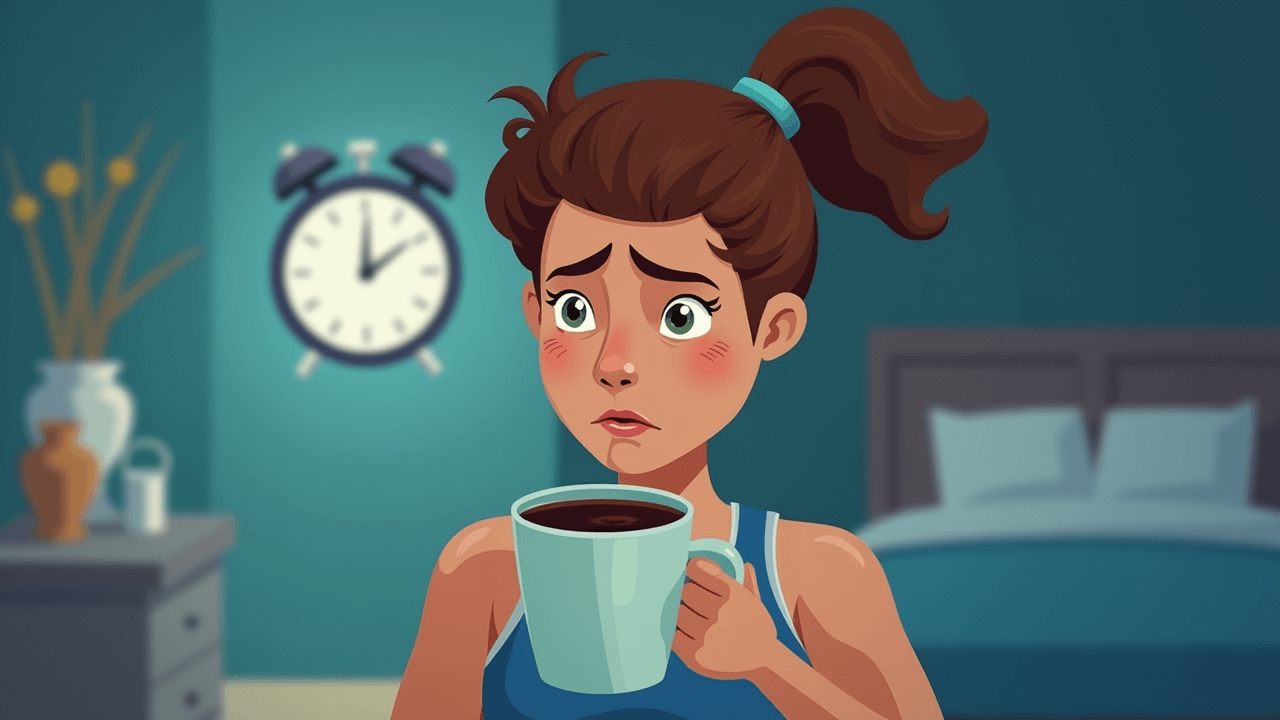Can You Really Outrun the Effects of Caffeine Before Sleep?
Have you ever had an espresso right before a workout and wondered if it will still affect your sleep? It’s a question I’ve asked myself many times, and I know a lot of us caffeine enthusiasts have pondered it too. Can you just outrun the caffeine crash?
The answer, like most things related to caffeine, is surprisingly complex. It all comes down to how our bodies process caffeine and how it interacts with our natural sleep-wake cycles. Let’s break it down.
How Does Your Body Process Caffeine?
One of the biggest misconceptions about caffeine is that your body can just burn it off like fuel during a workout. But that’s not really how it works. Your liver and kidneys are responsible for filtering caffeine out of your system. So, no matter how hard you exercise, your liver is still working at its own pace to break down caffeine, one molecule at a time.
In fact, scientists even use caffeine as a marker to detect human contamination in water sources. If caffeine simply disappeared from our bodies, that wouldn’t be possible. This tells us that caffeine sticks around in our systems for quite some time after we consume it.
What Does Caffeine Do in Your Brain?
So, if exercise doesn’t burn off caffeine, what’s really happening in your brain when you drink that cup of coffee or tea? Caffeine doesn’t give you energy in the traditional sense. Instead, it blocks something called adenosine, a neurotransmitter that builds up throughout the day, making you feel tired.
Caffeine essentially cuts the brakes, stopping the adenosine from signaling that it’s time to rest. But this doesn’t mean you suddenly have more energy. You’re just masking your body’s natural signals for rest, which can lead to that inevitable caffeine crash later on.
Does Caffeine Affect Your Sleep After Exercise?
Even though exercise won’t help you break down caffeine faster, it can make that post-workout crash feel worse. If you’ve already depleted your energy reserves during exercise, the caffeine masking your tiredness might push you beyond what your body can handle, making the crash more intense.
This means that even if you have an espresso before a run, you’re still going to feel the effects of caffeine when you’re trying to fall asleep later. Your body is playing a delicate dance between caffeine’s impact and your natural sleep-promoting hormones.
Why Caffeine’s Effects Linger for Hours
It’s important to understand that caffeine can stay in your system for several hours. Even if you’re no longer feeling that initial buzz, it could still be influencing your sleep. Some people metabolize caffeine faster than others, but for most, it can linger well into bedtime.
And here’s another piece of the puzzle: strenuous exercise releases hormones that promote sleep, which would typically help you wind down after exertion. But when you throw caffeine into the mix, those sleep-promoting hormones end up battling against the caffeine that’s still blocking your adenosine.
So, Should You Skip the Pre-Workout Espresso?
It’s not necessarily about avoiding caffeine altogether, but being mindful of when and how much you consume. For some, an espresso a few hours before bed might not interfere with sleep. For others, it could mean a restless night of tossing and turning.
Everyone metabolizes caffeine differently, and how your body responds depends on various factors like your sensitivity to caffeine, how much you’ve had, and the intensity of your workout. So, while your workout might help you feel exhausted, caffeine might still disrupt your sleep.
Making Informed Choices About Caffeine
One of the biggest takeaways from this deep dive into caffeine is that it’s more powerful and long-lasting than we often give it credit for. We tend to think of it in simple terms: drink coffee, feel awake, then crash. But the reality is much more nuanced.
If you love your caffeine, it’s important to pay attention to how it affects your body. Timing is key, especially if you’re sensitive to caffeine and struggling with sleep. You could try shifting your caffeine intake earlier in the day or experiment with smaller doses to see how your body reacts.
Is Caffeine Trickier Than You Thought?
It’s easy to fall into the habit of constantly reaching for caffeine to override your natural tiredness signals. But if we’re always masking our body’s cues, are we really giving ourselves the rest we need? It’s worth reflecting on whether we’ve become dependent on caffeine, pushing ourselves past our limits.
So, next time you reach for that cup of coffee or tea, consider what’s driving that craving. Is it genuine tiredness or has caffeine subtly shifted your baseline of what tiredness feels like? Being mindful of how caffeine interacts with your body can help you make more informed choices, whether you’re getting ready for a workout or winding down for bed.
FAQ
How long does caffeine stay in your system?
Caffeine can stay in your system for up to 6 hours, but it depends on individual metabolism. Some people metabolize it faster, while others may feel its effects for longer.
Does exercise help eliminate caffeine faster?
No, exercise does not speed up the process of breaking down caffeine in your body. Your liver and kidneys work at their own pace to filter out caffeine.
Can caffeine really affect my sleep hours later?
Yes, even if you don’t feel the immediate effects of caffeine, it can still interfere with your sleep hours later, especially if consumed in the afternoon or evening.
Does caffeine have any benefits for workouts?
Caffeine can increase focus, alertness, and energy levels during workouts, but it won’t burn off faster because of exercise. It’s important to consider its lingering effects on sleep.
How can I manage caffeine intake without affecting my sleep?
To minimize caffeine’s impact on your sleep, try consuming it earlier in the day and experiment with smaller doses. Pay attention to how your body reacts and adjust accordingly.
Your Hosts

Alex & Maria
Join Alex Thompson and Maria Davis as they navigate the fascinating world of knowledge. With their combined expertise and passion for learning, they simplify the complex and make every episode a journey worth taking.

